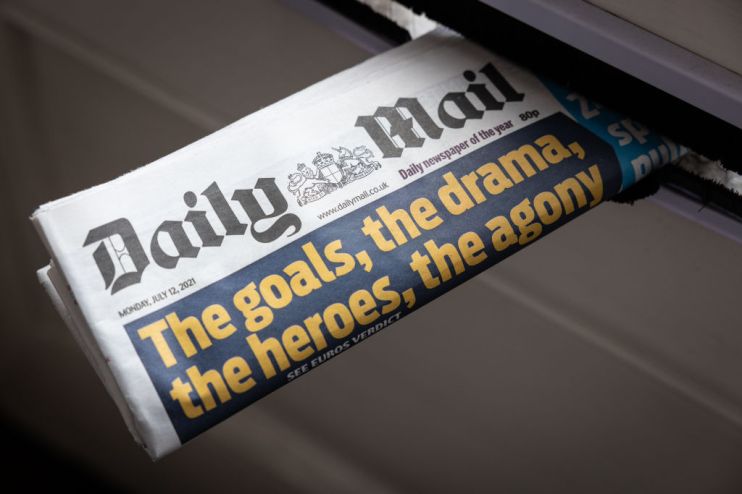Daily Mail: Lord Rothermere’s take-private bid is a bold step forward into the past

It’s rare that a routine stock market announcement ruffles feathers, but when Daily Mail and General Trust, the parent company behind the Mail newspaper titles, yesterday revealed that Lord Rothermere was weighing up a bid to take the media group private, it succeeded in doing just that.
It’s a complicated deal that relies on the sale of insurance risk division RMS, as well as the planned US listing of Cazoo, in which DMGT holds a 20 per cent stake that could be valued at more than £1bn. These windfalls, combined with a special dividend set to be paid out by the company, would in effect fund the move by Rothermere’s Jersey-based holding company to buy out the 70 per cent of DMGT it doesn’t already own.
The need to reach an agreement over pension schemes, combined with the uncertainty surrounding these disposals, mean the take-private bid is far from a done deal. Shareholders may also question whether the £810m price tag on the slimmed down business represents fair value. Caveats aside, though, the main question is why Rothermere — patriarch of the newspaper’s founding family — wants to take DMGT private after almost 90 years on the London Stock Exchange.
One major factor could be the group’s sprawling conglomerate structure, which has long been viewed as a drag on its share price. Aside from its core media assets, DMGT controls a range of businesses in more fashionable — and profitable — areas such as data and tech.
In recent years, under chief executive Paul Zwillenberg, the Mail owner has inked a string of lucrative deals to cash in on these assets, including $410m for its edtech business Hobsons and $364m for energy information unit Genscape. Even more fruitful was the sale of Zoopla and its controlling stake in Euromoney.
DMGT’s dual-class share structure means that while Rothermere owns about 30 per cent of the group, he has virtually all of the voting rights. Perhaps the media baron feels the time is right to consolidate his control and keep the returns from any future deals to himself. With consolidation rife in the sector, the privatisation could also be a defensive move to fend off any potential bidders.
Regardless of the motives, however, Rothermere’s plans herald a new era for the company; one that, paradoxically, hails back to its traditional roots. DMGT has done an excellent — and often under-appreciated — job of diversifying its business beyond its core media assets at a time of decline for traditional newspapers. But the flurry of recent sales suggest it’s now cashing out of these ventures. Analysts reckon further disposals of the group’s property information and events divisions are on the agenda.
Instead, DMGT has been going the other way. Its recent acquisitions of the i newspaper and the New Scientist suggest a renewed focus on consumer publications. Dennis Publishing has now put The Week up for sale, and this seems a likely next target. As consolidation continues apace, DMGT’s future strategy could be a game of scale, as it sweeps up more titles and doubles down as a publishing powerhouse. Speculation has also been mounting that the company will spin off and list Mail Online. All eyes will be on the success of Buzzfeed’s planned Spac deal in the US, but the timing could be right for DMGT to cash in on its hugely popular online presence.
If confirmed, Rothermere’s take-private deal would also usher in a new era for the media industry. Not only would it leave Mirror publisher Reach as the only publicly-listed news organisation in the UK, it would also signal DMGT’s commitment to its traditional media titles in spite of the wider turmoil caused by the likes of Google and Facebook. For the Mail’s owner, then, going private would be a bold step forward into the past.